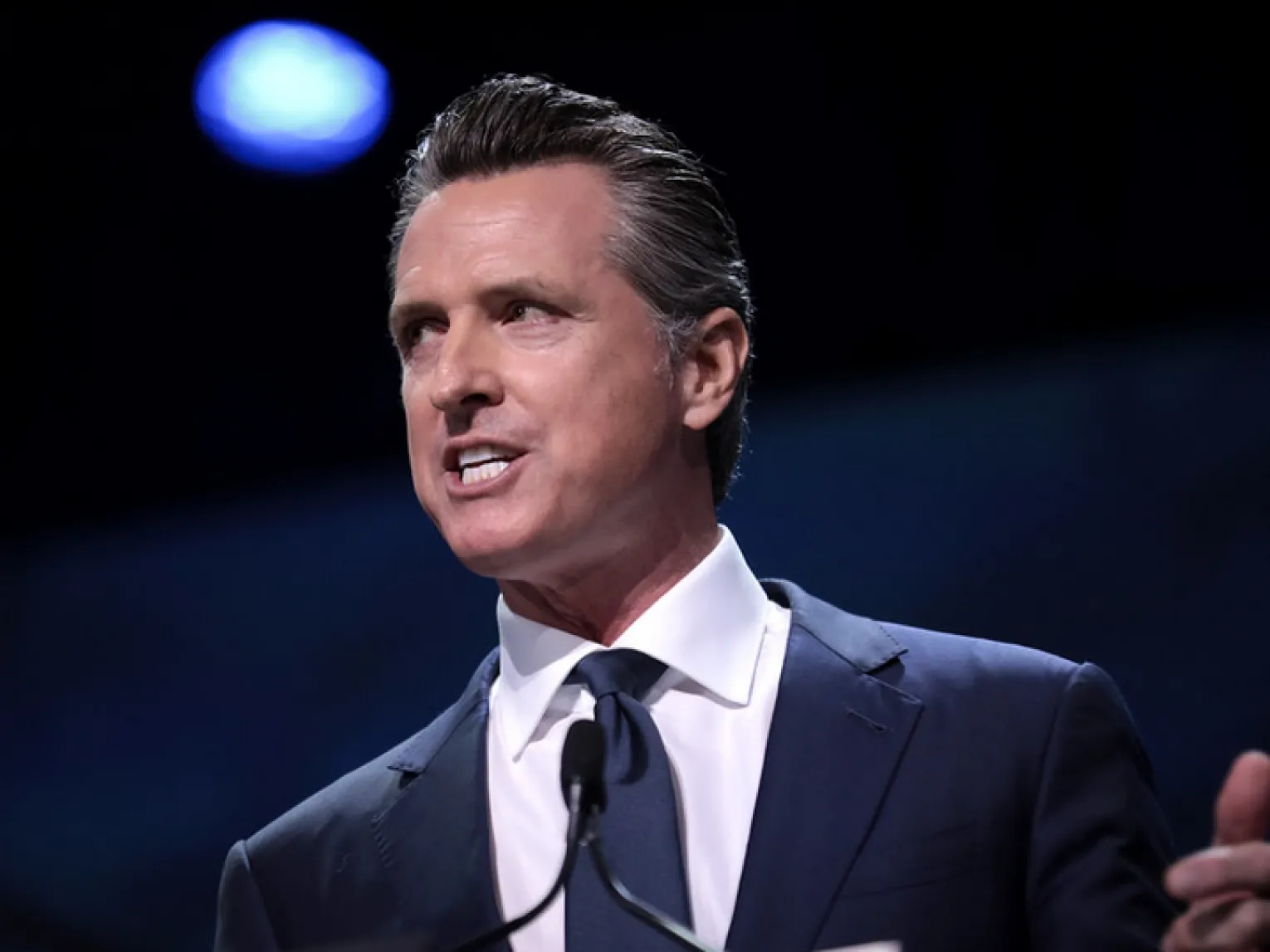When reality hit the Democratic Party and its ruling-class allies the day after the election, one Democrat must have been relieved: California governor Gavin Newsom. The Kamala Harris loss not only ends her political career—at least at the presidential level—but also clears the way for Newsom to pursue the White House himself.
A Harris victory would have delayed Newsom’s quest for eight years, but now he can start laying the groundwork now for a run in 2028. Newsom will spend the next two years in office before becoming a full-time candidate, and, given the constitutional limit on two terms, the Republicans won’t have the advantage (or the weight) of incumbency and will likely present a candidate with less name recognition than Newsom possesses.
The New York Times already has jumped in feet-first in its “Style” section with a hagiographic portrayal of Newsom, hair gel and all. The writer breathlessly wrote:
Last year, he debated Ron DeSantis on that network, landing rhetorical jabs like “You’re nothing but a bully.” The appearances have burnished his reputation as someone who saunters into the conservative lion’s den and comes out with his slicked hair unruffled.
His first post-election “heroic” move was to call for a special session of the California legislature:
…to protect “California values” in preparation for former President Donald Trump’s return to the White House. Less than 36 hours after Trump’s resounding victory over Vice President Kamala Harris, the California governor — a prominent opponent of the former president during his first term — called to bolster the state’s legal resources with the aim of protecting reproductive healthcare, climate policies and immigrant communities in California.
One might think that we are looking at something that is light years away, politically speaking, but in the world of presidential ambition, successful candidates spend years scheming to reach that office. John F. Kennedy’s father was planning the political careers of his sons long before they reached full adulthood, Ronald Reagan coveted the presidency more than 10 years before he was elected in 1980, and Jimmy Carter and his advisers quietly launched their quest long before the Watergate scandal gave him a major opening. […]
— Read More: mises.org

